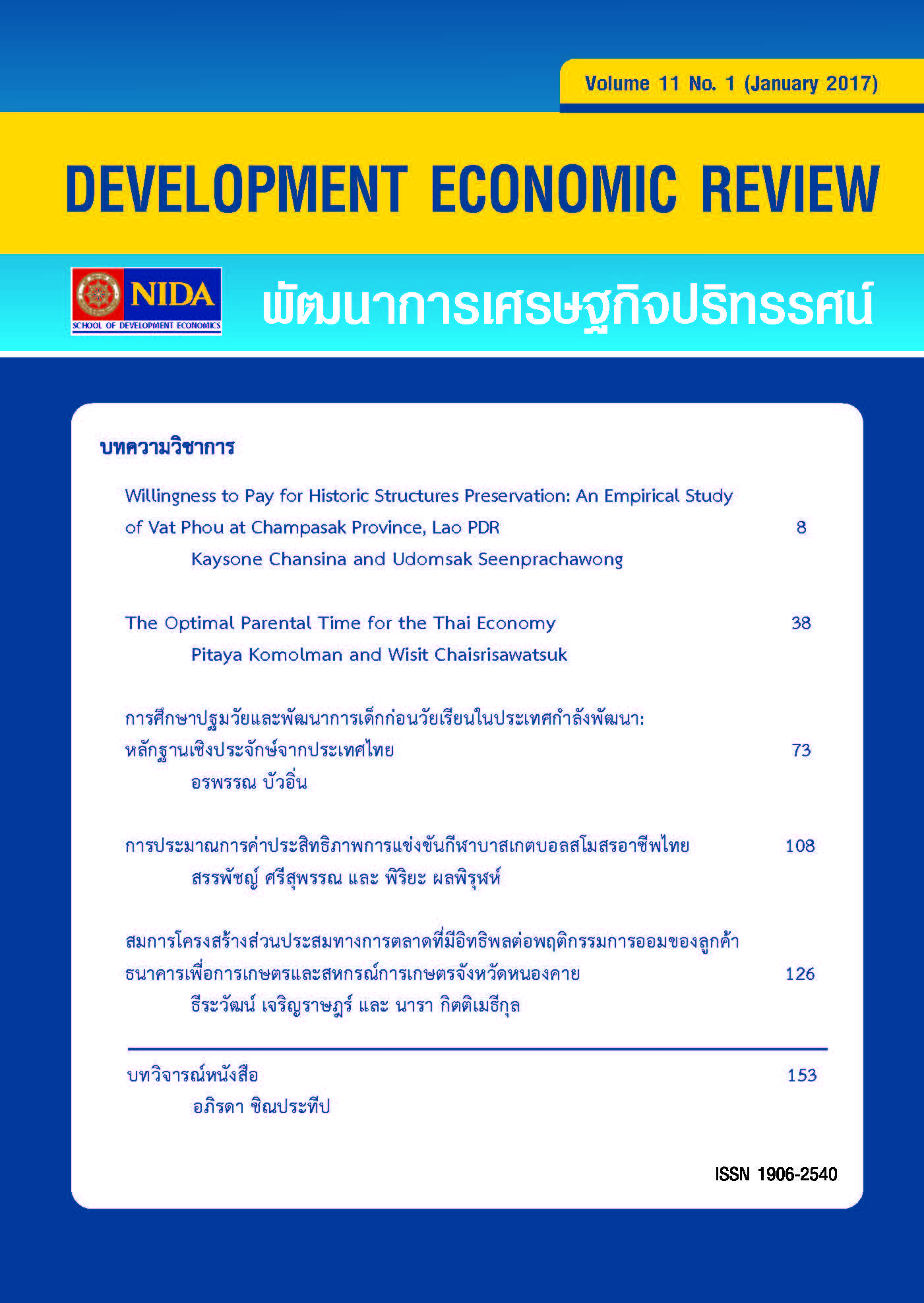Pre-Primary Education and Child Development Outcomes in Developing Countries: Empirical Evidences from Thailand
Keywords:
Pre-Primary Education, Child Development, ThailandAbstract
Due to the un-compulsiveness of primary education level in the national compulsory education
system, early child education depends on the desire of each family. On the other hands, this leads
some families to be unaware of sending their children to participate in that learning level. The issues
of inaccessibility of early child education are extremely especially severe in developing countries
where educational inequality occurs nationwide. This study aims to estimate chances of early child
education access and to analyze the advantage of primary education affecting to children intellectual
improvement in developing countries by using the information surveyed in Thailand as a case
study. According to raw data collected the situation of child and woman in Thailand in 2012, the
research found that apart from ordinary social and economic factors, educational level of mother
or primary caretaker plays an important role in the possibility of educational opportunities of children
in their early childhood. According to the estimated outcome of early child education on child learning
development, when all variables are controlled, the students who can associate with primary
education statistically significantly well perform in their learning development rather than those who
cannot access to education at that level. Thus, this study is created to support and encourage the
government to provide an educational opportunity for early child learning sufficiently and lift the
standard of child development center in the remote area of the country.
Downloads
Published
Issue
Section
License
Copyright to published manuscripts becomes the property of the Graduate School of Development Economics, National Institute of Development Administration. Reproduction of all or part of a Development Economic Review (DER) article by anyone, excluding author(s), is prohibited, unless receiving our permission.
Disclaimer: Opinions expressed in articles published in this journal are those of the author (s) and do nto necessarily represent opinions of the Graduate School of Development Economics, National Institute of Development Administration. Trade and proprietary names are only for identification and not constitute our endorsement.


